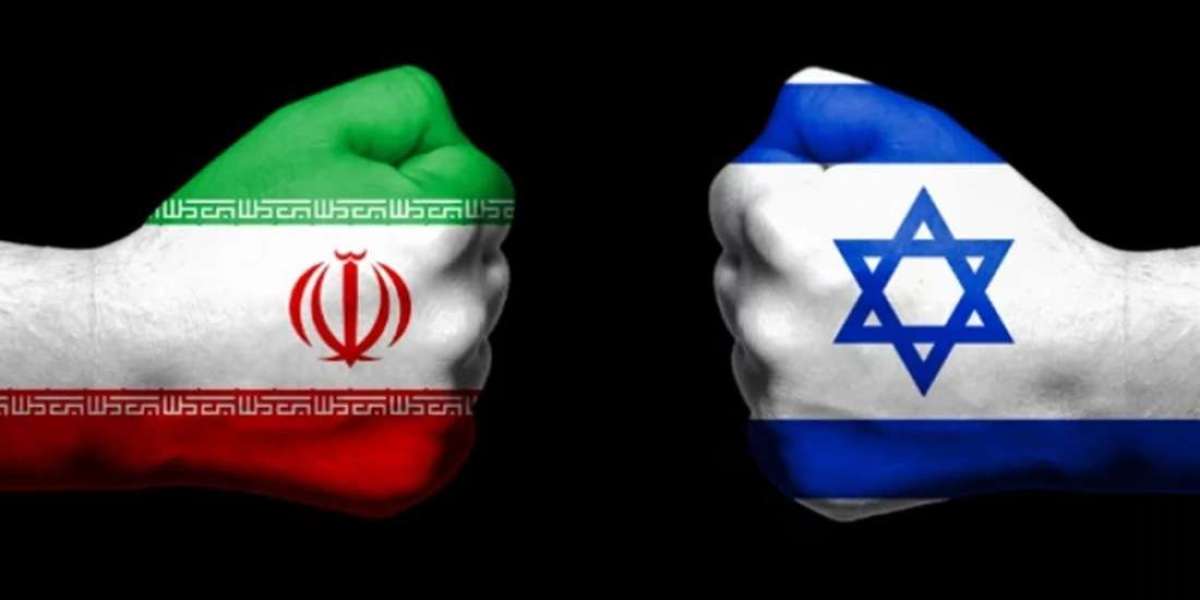After the victory of Donald Trump in the US elections, Bangladesh, like many countries, is now a matter of discussion, how will the bilateral relations between Bangladesh and the United States be in the coming days.
Bangladesh's relationship with the United States has cooled in recent years due to human rights concerns. At that time, the ousted Awami League government and the United States also expressed it in various statements.
However, after the interim government led by Professor Muhammad Yunus took office through the popular uprising in July, there has been a lot of warmth in the Bangladesh-US relationship.
Professor Muhammad Yunus has always had a good relationship with US Democrat leaders. A few days ago, while attending the session of the United Nations General Assembly, it was also reflected in his excited picture with US President Joe Biden.
Although the press secretary of the chief adviser Shafiqul Alam said that not only the Democrats, but also with the leaders of the Republican Party. Muhammad Yunus is well connected. According to him, with the victory of Donald Trump, the existing relations of the United States with Bangladesh will reach a higher peak.
However, above all, the question is definitely coming that the ice of the relationship between Bangladesh and the United States has started to melt for the past few months, whether it will continue or not. Or, because Donald Trump won, there will be a big change in Bangladesh-US relations?
Reasons for skepticism about the Trump administration
According to analysts, there will be no overnight impact on Bangladesh, but it will be long-term. Also, with Donald Trump. It is not clear how deep Muhammad Yunus' relationship is.
Some indication of this can be found going back to 2016. Donald Trump was elected as the President of the United States for the first time from the Republican Party.
In the same year, while speaking at a university named HEC Paris, Dr. Yunus described Donald Trump's victory as an 'eclipse' or dark time.
Chief Advisor Muhammad Yunus congratulated Donald Trump for being elected the 47th President of the United States. In a letter on Wednesday, he said, looking forward to further strengthen the partnership between the two countries and work together for sustainable development.
However, due to winning the US presidential election, Indian Prime Minister Narendra Modi directly phoned Donald Trump and he himself tweeted from his verified account on his social media X (formerly Twitter).
Earlier, he had tweeted another tweet congratulating Trump along with some pictures of the two of them. In both these tweets, Narendra Modi addressed Trump as 'friend'.
It is an established fact that the relationship between Donald Trump and Narendra Modi has always been good. Also, India has always had a very good relationship with the Republican Party. But this friendship between the two is a cause of concern for Bangladesh, say analysts.
Because India is the best friend of the ousted Awami League and naturally India's aim will be to provide all possible support to bring the Awami League back to power.
In this context, the professor of government and politics of Illinois State University. Ali Riaz said in an interview to BBC Bangla that it is true that the election of Donald Trump may put pressure on Bangladesh. But for a regime change (change of regime or government) in one country, Trump will go for another country, I doubt.
Narendra Modi's behavior after the fall of the government shows that he could not accept this (government) change. They are kind of waiting. Creates instability for regime change.
The Indian lobby is active in the US
Another reason for Bangladesh to worry about the Donald Trump administration is a tweet given by Donald Trump on X (formerly Twitter) about Bangladesh a few days ago.
In that tweet, he claimed that minorities, including Hindus, were being 'savagely persecuted' in Bangladesh. His statement then put the interim government of Bangladesh in question.
What is the indication of Donald Trump's tweet? Ali Riaz was asked to know.
He said, this tweet proves that there is a kind of lobby of India, Indian origin inside the US and that lobby has a lot of power. Those lobbies have a lot of influence in US administration and politics and they are using them.
Shafiqul Alam, the press secretary of the Chief Adviser, also said that some lobby groups may have tried to influence it and this statement came in that light.
The former ambassador of Bangladesh in the United States M. Humayun Kabir told BBC Bangla that Donald Trump had been fed. That is, it is implied to him.
But if these Indian lobbies try to create instability in Bangladesh through them, then its consequences are not good for India.
Besides, many domestic and foreign analysts said that before the election, Donald Trump made the tweet to get the votes of Indian origin and Hindu Americans.
The use of religion in politics has been used for a long time and it happens in all countries, Ali Riaz said, Trump used the effect of that tweet because it was needed at that moment. This is the use of religion.
He says, if he can get votes by insulting Mexicans, calling blacks good people, humiliating Bangladesh a little to gain support from Hindus, he has done all this.
But now that Donald Trump has won, India will not be able to use that closeness so easily even if it wants to, he said, Donald Trump is a very transactional person. He believes in give and take. If you give it, I'll give it. If I give it, you have to give it. This transactional politics is a very dangerous game.
Ali Riaz said, how far Modi will go to get to this place, what he will do depends on whether the United States will consider the Bangladesh issue with India or not... I will not be surprised if Modi tries to use (friendship). But it doesn't match Trump's broader foreign policy. But again it matches with his (Donald Trump's) transactional behavior.
How will the impact in Bangladesh?
According to Professor Ali Riaz, he does not think that there will be a sudden dramatic change in the relationship between the United States and Bangladesh after Trump wins. Because it has to be considered from the perspective of broader international relations whether there is any change in US policy.
But he also said that there will be a big impact on the relationship with Bangladesh, there will not be so much closeness. There will be no warmth. But this professor does not see any signs of returning to a hostile or tensed relationship between Bangladesh and the United States as it was during the previous Awami League government.
China also has an important role in US relations with Bangladesh. According to Ali Riaz, China is the dark cloud in Indo-US relations.
According to him, the basis of the US relationship with China, how much the US needs India, what India has to give and what India wants, are all equations here.
The former ambassador of Bangladesh in the United States M. Humayun Kabir specifically mentioned the issue of China in an interview given to BBC Bengal.
According to him, the United States does not see Bangladesh bilaterally. The US sees Bangladesh through the eyes of India and sees India in the context of China. India is its ally because of its rivalry with China.
He says that they see Bangladesh as a component of US diplomacy in the Asian region. The context of that element is that now he is busy competing with China. It will be even sharper under Trump. If it is to be maintained, its strategic relationship with India will be maintained.
That is, the United States will not want to bother with Bangladesh here. Because they know very well that if there is stability and the economy continues to improve, then we can continue to partner with them very well.
Economic instability has been prevailing in Bangladesh for a long time. Rumor has it that the return of Donald Trump will increase that economic pressure. Although Humayun Kabir does not think so.
He said, in the current reality of Bangladesh, the United States will not interfere with the assistance that is needed to strengthen our economy. This is where the United States needs us, and the United States can provide this assistance bilaterally or multilaterally.
According to him, if they do not do this, then the economy will stagnate and chaos will be created in the country. They want to see Bangladesh stable. Because it is a small and geographically large population country.
Humayun Kabir says that the US-Bangladesh relationship will continue in this one place, regardless of the administration that comes to power. Because decision-making in the United States is not a private process. It follows the institutional process.
He said, if Bangladesh can continue its own democratic process, its own inclusive system, a creative economy – which the Americans like very much; Then we can maintain bilateral relations directly with the United States. India is no longer needed there.
Professor Ainul Islam of Jagannath University's Department of Economics has almost the same opinion about the Trump administration's trade policy and the economy of Bangladesh.
According to him, Donald Trump's trade policy will not affect Bangladesh in terms of trade and economy if good diplomatic relations are maintained. I am not talking about politics.
Although trade and economics are related to politics, added the professor.
In this regard, he also mentioned the China-US relationship and said that the United States has always had a hostile attitude towards China in the field of trade wares. Donald Trump's personal behavior suggests that will continue. Still, it has its upside.
Ainul Islamer says, if Bangladesh can have good diplomatic relations, they can divert the things they are taking from China or India and open this trade with Bangladesh. If Bangladesh tries, it can get those markets including the garment sector. So far I don't see the downside. Because its (US) targets are Russia and China. Its trade relationship with China will become more difficult, it is understood.



















































